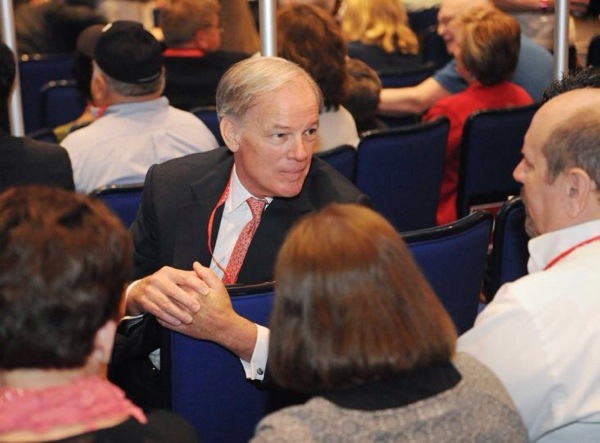Self funding is so 2010.
Typecast by the political opposition as trying to buy the governor’s office four years ago, when he spent $11 million in defeat, Republican Tom Foley committed Tuesday to participating in the state’s public election financing program.
“We wanted to let you know that now that Governor (Dannel P.) Malloy has committed to using the public financing, we are applying for a grant, too,” Chris Cooper, a spokesman for Foley, told Hearst Connecticut Media Tuesday morning.
Foley, 62, who earned the GOP’s endorsement for governor May 17, is expected to file paperwork today with the state Elections Enforcement Commission seeking funding for his campaign.
The former U.S. ambassador to Ireland under President George W. Bush and a private equity manager from Greenwich is eligible for $1.4 million for the GOP’s August 12 primary.
Should he win the three-way race over Danbury Mayor Mark Boughton and state Senate Minority Leader John McKinney, Foley would qualify for an additional $6 million for the general election against Malloy.
Running even with Malloy in the two most recent polls conducted by Quinnipiac University, Foley had been hedging his bets publicly on how he plans to pay for a potential rematch against his bitter adversary.
Within two weeks of each other, both campaigns declared they raised the requisite $250,000 to qualify for the state’s so-called clean elections program, which limits individual political contributions to $100.
The campaign of Malloy, who is not facing a primary, filed its grant application on Friday with the state elections enforcement agency.
By accepting public money for his campaign, Foley ends speculation that he will open the bank vault once again in his pursuit of the state’ top office.
Connecticut is a political graveyard for self-funders. Foley, fellow Republican Linda McMahon and Democrat Ned Lamont spent a combined $135 million on five separate statewide races for U.S. Senate and governor spanning from 2007 to 2012 and have no general election victories to show for it.
In an interview last week, Foley downplayed the impact that the stigma of self-funding had on his bid for governor four years ago, however.
“It didn’t hurt me the last time,” said Foley, who lost to Malloy by less than 6,500 votes. “I came pretty darn close in a blue state.”
